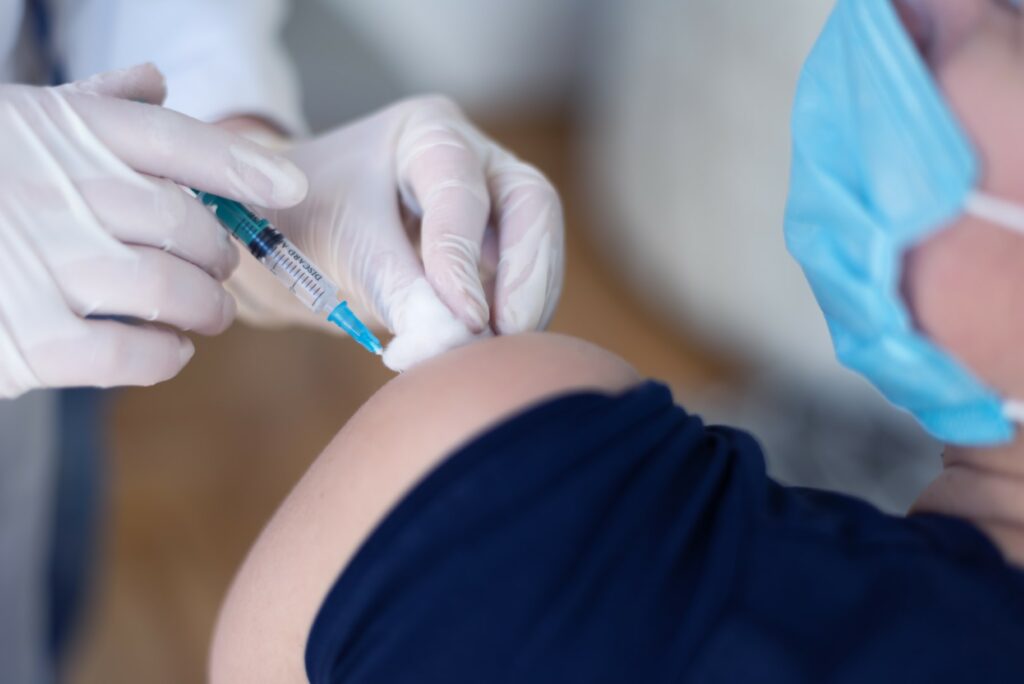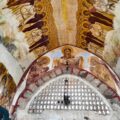Serbia: Does the vaccine make you an infidel or a responsible citizen?
Serbia: Does the vaccine make you an infidel or a responsible citizen?
Opposing rules and recommendations from the state and the Serbian Orthodox Church led to polarisation in Serbia during the pandemic. Will this fade away?
This article is part of our series on the social impact of COVID-19.
The initial fear of an unknown enemy
When the coronavirus appeared in Serbia, the president said that “Serbia is fighting against an invisible enemy.”[1] Like most other European countries, Serbia has taken strict isolation measures as the main weapon in the fight against the new virus.[2] These measures meant that schools, universities, and kindergartens were closed, and all sports activities cancelled.[3] Initially, people over the age of 65 were completely banned from leaving their homes and yards.[4] However, Serbia faced great challenges in fighting the virus, since legal provisions are not greatly respected.[5]
Diaspora and Easter
The first big test for the anti-pandemic measures introduced by the state was the celebration of Easter in 2020. Many Serbians live outside of Serbia, and come to the country during Christmas and Easter. This posed a challenge to the battle against COVID-19, since Serbians were afraid that large numbers of contacts during these celebrations would further spread the virus. Therefore, President Aleksandar Vučić decided to appeal to its diaspora not to come during Easter.[6] In addition, a measure was passed that stated that Serbian citizens from a number of other countries had to quarantine upon their entry. With many people violating these rules, President Vučić stated that punishments could include up to 3 years in prison.[7] [8]
Although the state prescribed strict measures, the Serbian Orthodox Church (SOC) was informally exempted from some of them. This can be seen by the fact that the SOC did not give official instructions on coronavirus restrictions in churches, posted the list of churches on its website where Easter Liturgies would be served, and continued to give communion to all believers with the same spoon.[9]
Another state decision was to impose a curfew during Easter, which meant that believers could not visit churches.[10] This caused polarisation in society. Some believers sent a request to the Synod to insist on allowing believers to at least attend the Easter Liturgy. This was rejected by the state.[11] The SOC then advised believers to celebrate Easter at home.[12] Contrary to the SOC’s decision, some priests, including Bishop Nikanor Bogunović, invited the faithful to come to the Liturgy and receive communion.[13]
How to choose the best vaccine
By February 2021, Serbia bought vaccines from several countries, allowing citizens to choose between four: Pfizer-BioNTech, Sputnik V (Gamaleja Research Center), Sinopharm, and Oxford / AstraZeneca.[14] [15] Based on survey results, two-thirds of the respondents believed that the Chinese and Russian vaccines are more reliable than the vaccines from the West.[16]
The Roman Catholic Archbishop of Serbia, Stanislav Hočevar, advised against receiving vaccines that were produced using embryonic cells.[17] The SOC’s noncompliance with anti-pandemic measures, as well as its advice to receive only certain vaccines, posed moral problems to Serbian citizens. Society was divided over the question of vaccines.
Communion with the same spoon or not?
Vaccination was not the only dilemma for SOC believers. The SOC is the largest religious community in Serbia, and it is customary for everyone to receive communion with the same spoon. This caused great concern during the COVID-19 pandemic and has been interpreted as endangering public health. The Patriarch of the SOC, Porfirije Perić, called on believers to respect all health measures, but the practice of communion did not change.[18] As a result, the SOC was criticised in the media because it insisted on having communion with the same spoon.[19]
Some SOC employees stated that they were scared because of the church’s insistence on the common spoon. Because of their doubts, they were characterised as ‘unbelievers’.[20] This debate led to a division among the believers into those who supported communion with the same spoon and those who were against it.[21]
SOC as a strong polarising social factor
As demonstrated throughout the pandemic, the SOC is a very powerful force in Serbian society – sometimes even stronger than the state. In fact, its recommendations during the COVID-19 pandemic regularly opposed state restrictions. The SOC never limited the number of believers in churches, which was done in most European countries.[22] [23] In addition, the SOC did not ask believers to wear masks during church services, and the practice of communion of all believers and clergy with the same spoon remained unchanged.[24]
Thus, this imbalance between the state and the SOC, with opposing rules and recommendations, led to great polarisation in Serbia. It remains to be seen if this polarisation will fade away with the pandemic.
Want to learn more about similar topics? Go to the EARS Dashboard and receive weekly updates.
Sources
[1] Srbija radi korona virusa u vanrednom stanju
[2] Srbija radi korona virusa u vanrednom stanju
[3] I u Srbiji vanredno stanje
[4] Da li smemo dok traje korona virus da idemo u šetnju ili džogiramo?
[5] Građani umorni od korone, sve manje poštuju mere
[6] Korona virus COVID-19: Informacije za državljane Republike Srbije u inostranstvu
[7] Bijeg iz kućne izolacije otežava borbu protiv korona virusa
[8] Sav besmisao izolacije u Srbiji stao je u jednu fotku
[9] Srpska crkva ne odustaje od pričešća kašičicom ni za Uskrs 2021.
[10] Borba za pravo na Vaskrs u Srbiji (Dr Zoran Čvorović, dr Vladimir Dimitrijević)
[11] Borba za pravo na Vaskrs u Srbiji (Dr Zoran Čvorović, dr Vladimir Dimitrijević)
[12] Korona virus: Pet novih žrtava u Srbiji, vernici proslavili Uskrs u karantinu
[13] Vladika banatski Nikanor krši mere Vlade i zove vernike na pričest: “Crkva je najizlečivija bolnica”
[15] Vakcinacija i korona virus: Zašto je Srbija u vrhu zemalja po broju imunizovanih
[16] CeSID: Dve trećine ispitanika veruje da su ruska i kineska vakcina pouzdanije
[17] Crkve u pandemiji između teorija zavere i poziva na vakcinisanje
[18] Srpska crkva ne odustaje od pričešća kašičicom ni za Uskrs 2021.
[19] Korona virus i crkva: Šta vernici misle o pričešćivanju tokom epidemije
[20] Korona virus i crkva: Šta vernici misle o pričešćivanju tokom epidemije
[21] SPC i jedna kašičica za vernike i u pandemiji
[22] France’s top court orders review of Covid-19 restrictions on church attendance
[23] Dutch parishes deal with renewed limits on numbers at Mass






